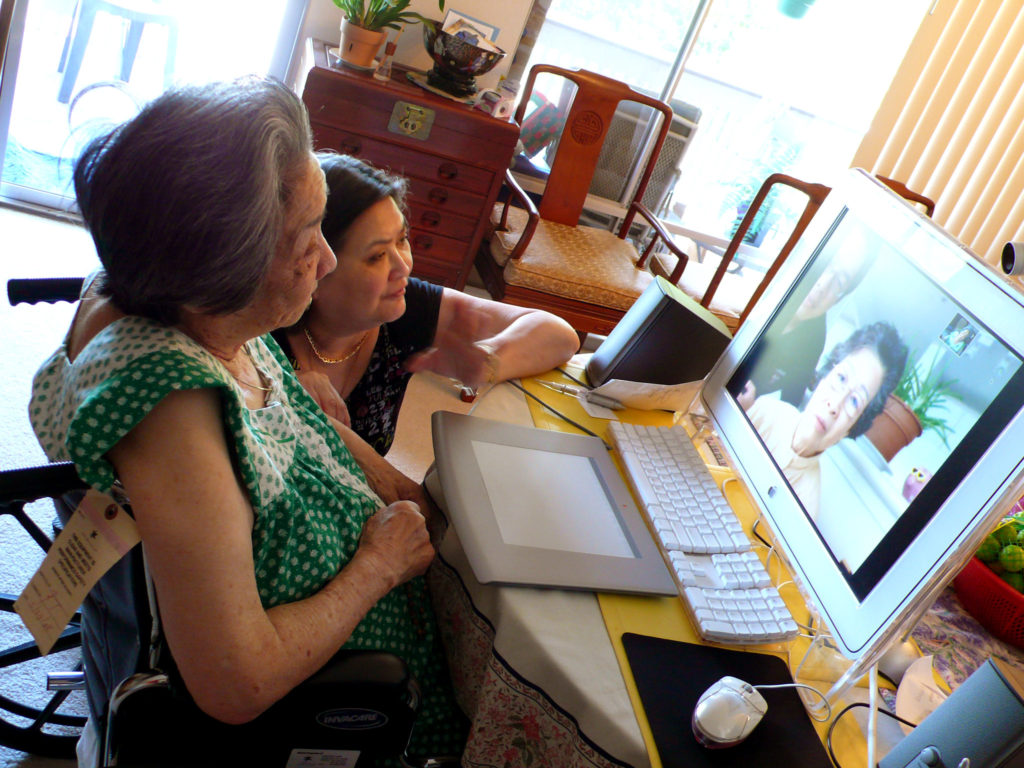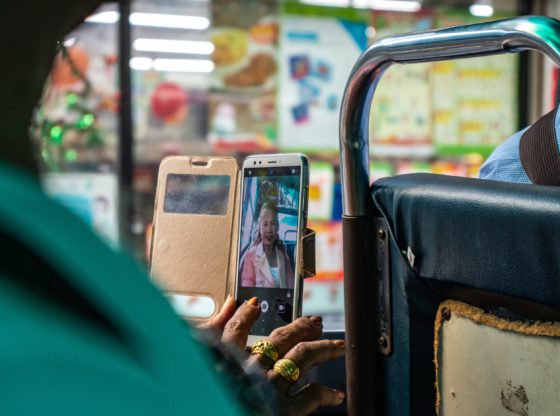by Loretta Baldassar (UWA) and Raelene Wilding (La Trobe)
AT the University of Western Australia (UWA) Social Care and Social Ageing Living Lab, we draw on the ‘social ageing’ approach to aged care. This approach emphasises the role and value of the relationships in an individual’s social support network (formal and informal), including with the environment (physical and structural), as well as the use of technologies to mediate local, virtual and distant support networks. The ‘social ageing’ approach supports the development of collaborative communities of care that extend older people’s support networks.
The Living Lab focuses on developing and evaluating the role of technology in creating and supporting the social connection and inclusion of older people, across both residential and community living, including promoting digital citizenship. The Lab has particular expertise in diversity issues, including migration, cultural and linguistic diversity, and LGBTQI status, as well as formal, informal, professional, local, distant and virtual support networks.
Our development of the Living Lab has importantly been informed by the concept of ‘digital kinning’. We take the opportunity to present at the AAA meeting to introduce this concept in more detail.

Panel title: Care Across Borders: Intergenerational Care through Digital Technologies in Transnational Family Life
Panel co-organizers: Tanja Ahlin (University of Amsterdam), Lynnette Arnold (Brown University)
Presentation title: Digital Kinning and the role of intergenerational care support networks in ageing
by Loretta Baldassar (UWA) and Raelene Wilding (La Trobe)
Increasing attention is now being paid to the maintenance of families across distance. A strong and growing body of evidence demonstrates that a diverse range of digital technologies are mobilised to circulate care between family members and friends so that they can create and sustain ties of kinship and support. These ties, and the transnational caregiving practices that facilitate them, fluctuate over the live course, increasing in times of ‘care crisis’, including around end of life trajectories (ageing of parents). One of the impacts of the reliance on digital media for distant care exchange is that more expansive support networks are involved, as younger family members are co-opted into kin-work and care routines they previously would have been absent from. Today’s polymedia environments create the conditions for synchronous, continuous, multisensory co-presence across distance that begin to challenge the normative and ontological privileging of proximity in care and kinship relations. This paper reports on findings from our current ARC project, Ageing and New Media, which examines the role of distant social support networks in the wellbeing of older people. We propose the notion of ‘digital kinning’ as a way to examine the practices of providing care and support across distance through the use of new media. The concept of kinning (Howell 2013) highlights the processes of becoming kin, not on the basis of biological ties, but on the basis of what is done, performed and exchanged. For older people, these digital kinning practices often require facilitation by others, further emphasising their social relational and intergenerational nature.
More about the sponsored session at #AAA/CASCA 2019
Full list of events and panels on aging and life course at #AAA/CASCA 2019
